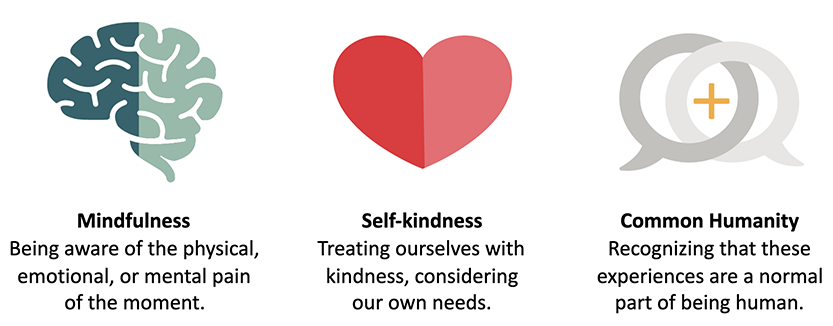The way we talk to ourselves impacts us at almost every level, as constantly being critical and talking down on ourselves can make us stressed, depressed and insecure.
This can become a vicious cycle, for being hard on ourselves too often can lead to our minds mentally attacking us more than we allow them.
Thus, practising self-compassion can help improve our overall mental and emotional well-being, which in turn makes us feel better everyday.

Dr. Kristin Neff, an associate professor in the University of Texas, academically defines self-compassion as having three elements: self-kindness, common humanity and mindfulness.
Self-compassionate individuals portray all of these traits, being able to turn understanding, empathy and acceptance inwards because they care about themselves.
Self-compassion differs from self-esteem; while self-esteem involves evaluating yourself in comparison with others, self-compassion creates your sense of self-worth.
It can also benefit your career by fostering a growth mindset, wherein personality traits and abilities are viewed as things that you are able to change.
For instance, when receiving constructive criticism, you are willing to learn from them because you know that they can help you become better at your job.
Having such attitude enables you to grow in your career as it drives you to put in the effort and stay positive and optimistic, boosting your desire to improve yourself and your motivation to work more effectively.
Self-compassion doesn’t just happen overnight; here are some steps to practise and cultivate this mental approach for a more wholesome life:

Be kind to yourself
Being kind to yourself is highly important. Try talking to yourself in the same way you would talk to a family member or close friend.
This means being understanding and gentle towards yourself when you’re feeling low, which helps you recognise that being imperfect and experiencing life’s challenges are nothing to be afraid of.
You may find it difficult to show compassion to yourself after troubling or traumatic events, but practising self-compassion in these times is particularly vital to feeling better by allowing you to come to terms with them and even learn from them.
Find time for self-care
Developing a self-care routine can also be highly beneficial, as meeting your needs can increase your ability to effectively care for others and support yourself.
Everybody has different requirements for self-care, but essentially, the goal of self-care is to be physically, mentally and emotionally healthy.
When your personal wellness declines, negative feelings are easier to direct on yourself, making it more difficult to feel compassion for others.

Consider journaling
Journaling or writing about personal imperfections can improve mindfulness, especially when combined with changes in personal criticism.
Instead of berating yourself, frame self-criticism as a critique given to a friend. If the words are too harsh for a loved one, then they are likely to be harsh to you as well.
In general, people are more accepting of the flaws of others than they are of their own so don’t beat yourself up if you’re struggling to foster self-compassion. With practice, you can embrace yourself as who you are as a person.
Photo by Khadeeja Yasser from Unsplash.




